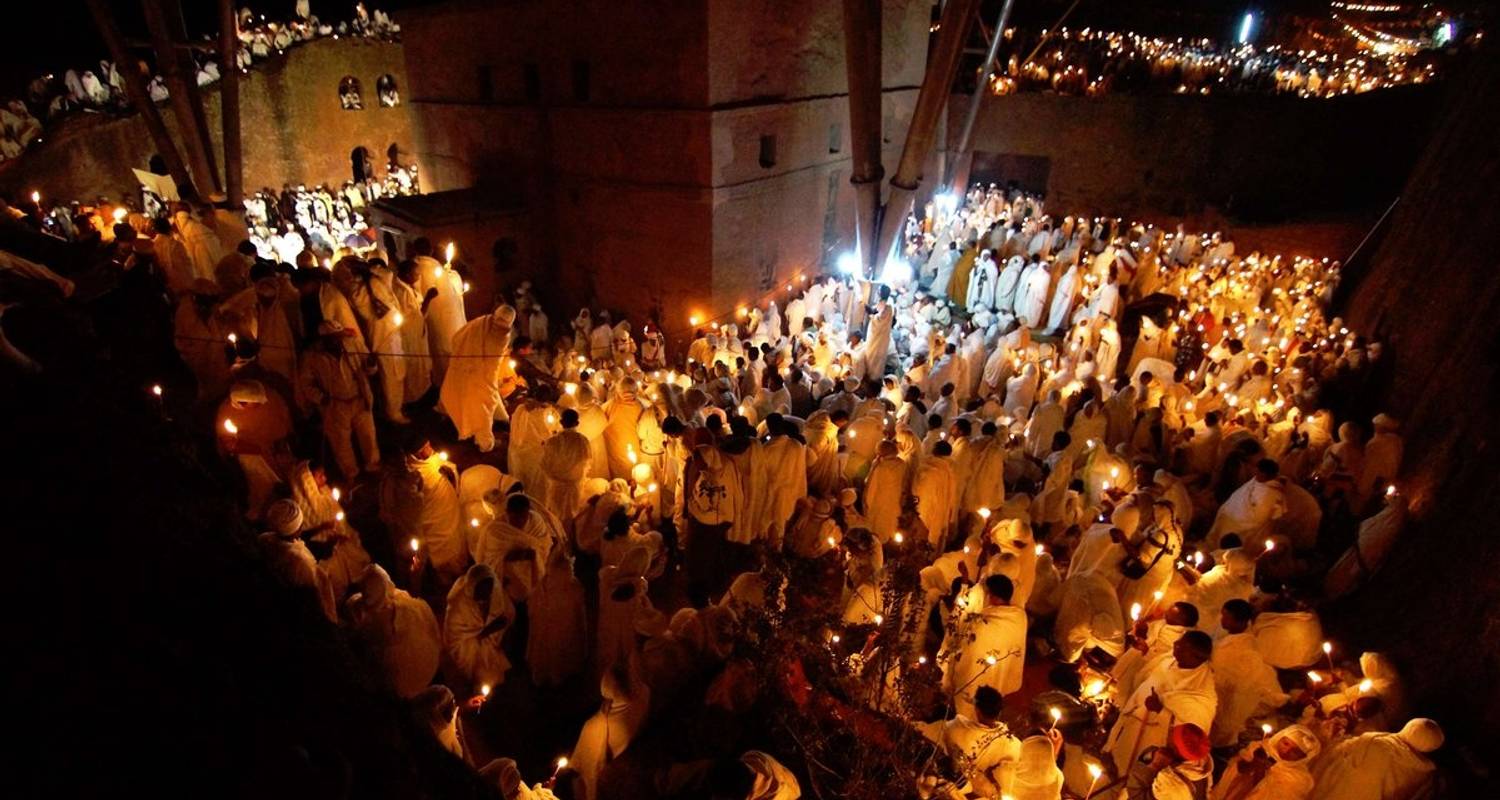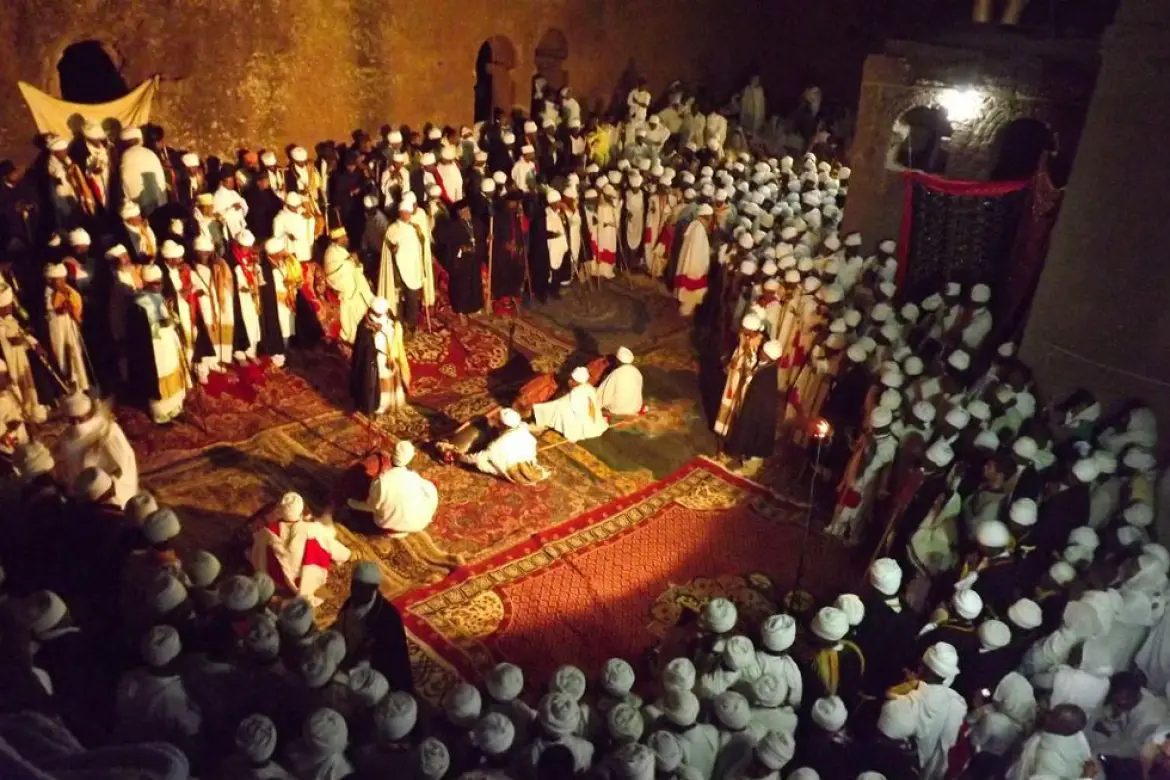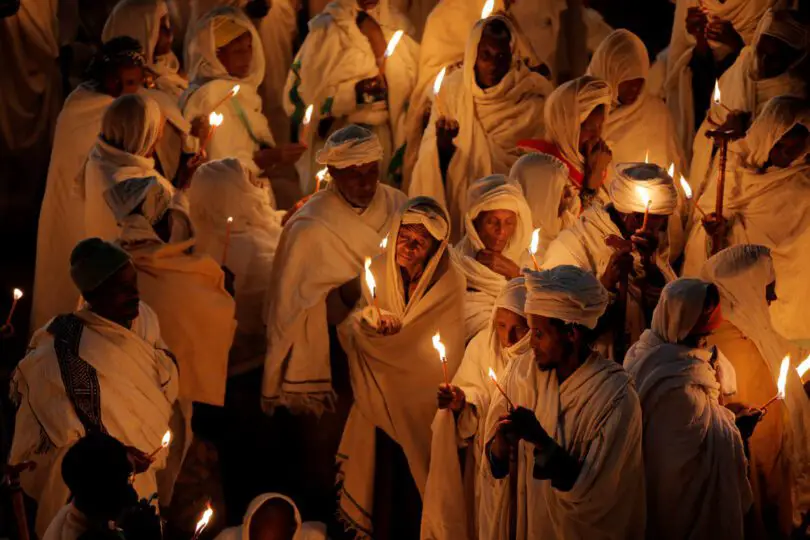Easter in Ethiopia is amazing despite using the Ge’ez Calendar which is seven years behind the universal Gregorian Calendar. Christmas in Ethiopia falls on January 7 and not December 25. Surprising as it is, Easter also known as Fasika in Amharic represents the Passover and it is mind-blowing.
Easter celebrations in Ethiopia are on different days from the rest of the world due to its unique calendar. But, this religious holiday is unique. This article tells you why. Read on.
Table of Contents
How Do They Celebrate Easter in Ethiopia?
Fasika in Ethiopia is a bright and colourful ceremony often combining traditional Ethiopian rituals with the religious attributes of Easter. Before Easter, Ethiopian Christians follow an extremely stringent fasting schedule. This fast lasts for 55 days, which is longer than the Lenten 40-day fast that many Christians observe worldwide. Worshippers mainly of Orthodox faith refrain from consuming any animal products—including meat, dairy, and eggs—during this time.

Orthodox Christians in Ethiopia. Photo/
Holy Saturday explodes with an all-night church vigil. Devout Christians attend prayers and sing hymns, commemorating Jesus’ final days. As dawn approaches, a symbolic chicken is slaughtered, signifying the official end of the fast. This sparks a wave of joyful anticipation. Christians dress in white on Easter Sunday during church services. However, you feel the true mark of Easter in Ethiopia after the church service.
People celebrate Easter Sunday by performing vivacious dances called “gambelas.” Gambela dances feature drumming and chanting and are performed while dressed in brightly-coloured outfits. It is also a day to feast on your favourite Ethiopian meals such as spicy meat, vegetables, and injera—a spongy flatbread that is a major sight on every Ethiopian meal.
What is the Ethiopian Easter Called?
Fasika is another name for Easter in Ethiopia. Fasika means “Passover” in Amharic derived from the term “Pascha” and represents the significance Ethiopians attach to Jesus’ death, burial, and resurrection. Fasika falls between late March and late April since it is observed according to the Ethiopian Orthodox calendar, as opposed to the Western Easter.
Fasting, repentance, song, dance and feasting make up this whole celebration. Ethiopian culture is also a part of the religious festival through food and dance.
How is Good Friday Celebrated in Ethiopia?
Good Friday, or “Siklet,” is a sombre and highly holy event celebrated by the Ethiopian Orthodox Christian community with great reverence and customs. The day is dedicated to thoughtful contemplation and prayer as it commemorates the crucifixion of Jesus Christ. Worshippers congregate in churches across the country early in the morning to begin the observance.
When leading prayers and chanting, Ethiopian Orthodox priests in ceremonial robes narrate the events leading up to the crucifixion of Christ. A deeply reflective mood of devotion is then created by the burning of incense and hymns making it a unique ceremony. The “Siklet,” or Passion of Christ reenactment, is one of the most prominent features of Good Friday in Ethiopia. It happens in town squares and churches. Participants portray Jesus’ agony by carrying crosses and acting out passages from the biblical story.
Observing Good Friday involves fasting as well. Worshippers are expected to refrain from eating or drinking until the afternoon or evening. A little dinner shared with loved ones breaks up this period of fasting and it is a longstanding tradition for Easter in Ethiopia.
Why is Ethiopian Easter Different?
Christians across Ethiopia undertake a 55-day fast known as Lent in the run-up to Easter which makes it different. Normally, it is a 40-day fasting period widely practised by Christians across the country. In addition, Ethiopian Lent is strict in both practice and application. Its followers are not allowed to eat any animal products.
Why Ethiopia is Seven Years Behind the World?

Ethiopian Christmas. Photo by Liyu Ethiopia Tours
Unlike the commonly used Gregorian calendar, Ethiopia uses the Ge’ez calendar, which is based on the ancient Coptic calendar. There are 13 months in the Ethiopian calendar. Twelve months with 30 days each and one extra month, called Pagumī, which has five or six days depending on whether it’s a leap year.
Ethiopia lags behind the Gregorian calendar by seven to eight years mostly because of discrepancies in the dates used to determine the Annunciation of Jesus Christ. It is thought that the Annunciation took place seven or eight years after the Gregorian calendar, according to the Ethiopian calendar. Further differences arise throughout time as a result of Ethiopia’s calendar not incorporating leap years as regularly as the Gregorian calendar does.
The Ethiopian Orthodox Church still uses the traditional calendar for liturgical ceremonies and holidays and Easter in Ethiopia solely depends on this. Even though efforts have been made to harmonize with the global calendar system, especially for administrative reasons. Nonetheless, Ethiopia continues to preserve its distinct temporal identity, which reflects its rich cultural and religious legacy.








